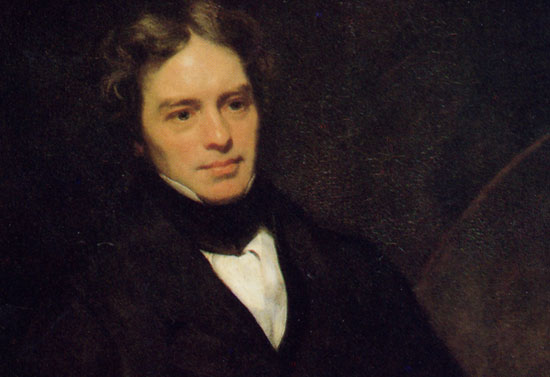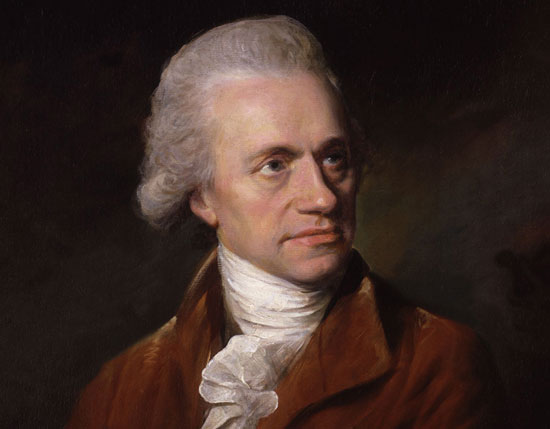The most self-taught geniuses of all time
They all have in common is that there is no condition to be fully educated but by the passion, the desire to learn has helped them to be successful and famous.
The miserable life of great geniuses
1. Michael Faraday (1791–1867) - The genius is self-study

The name of Michael Faraday is very famous all over the world and is considered one of the most influential scientists of all time. But few know he has no education or any training school, but most of the knowledge he has is due to self-discovery.
Michael Faraday was born into a poor family in the city of London so he could not afford to go to school.Instead, when he was 14 years old, Faraday had to work as a side-book worker at a bookstore for over seven years.During his time here, he began reading the books delivered to him and found a passion for science.He applied as an assistant to one of London's most famous scientists at the time, Humphrey Davy , but was rejected because he did not have a formal degree or any practical experience.
However, with effort and effort, he won the job later and demonstrated his outstanding ability with a series of inventions, such as electric motors, generators, Bunsen incinerators. and other important discoveries, creating a revolution in science and enrolling him as one of the greatest scientists in history.
2. William Herschel (1738-1822) - The musician with a passion for astronomy

William Herschel was a German musician who lived in England in the 18th century. Besides music, he also devoted passion to astronomy when he accidentally read the astronomical book in 1773. To satisfy this passion. He also worked hard to make his own telescope with 16 hours a day to sharpen mirrors and lenses.With a homemade glass that is better than any produced before, he has discovered many nebulae as well as constellations, new satellites and many other contributions to astronomy.
The biggest discovery, however, was that in one incident, he found a strange object that, after sending his observations to a Russian expert, he knew he had found a new planet. At first, he named the new planet ' Georgian Star ' after the name of King George III, but then the name Thien Vuong believed h was chosen.This is one of the 7 largest planets in the solar system and this discovery really marked a big step for astronomy.
3. Srinivasa Ramanujan (1887-1920) - The legendary mathematician

Indian mathematician Srinivasa Ramanujan is considered to be one of the few rare mathematical geniuses in the last century with nearly 3,900 research results mostly in the field of equations and unified consciousness .No formal math training but his contributions and discoveries to mathematics are really important and valuable.
Born in a poor Indian family, Srinivasa Ramanujan has no conditions to be fully educated, so he has to learn by himself.In Ramanujan, 10 years old, the boy became acquainted with mathematics when his parents gave him a high-class trigonometric book.In 13, he mastered the book and began exploring self-inventions of mathematical theorems.
Later, he was awarded a scholarship to a public university but fell in the first year because he could not concentrate on other subjects because he spent most of his time studying mathematics.He sent some of his works to the famous mathematicians in India and the United Kingdom, but were all ignored, not recognized or sent back.Only one Professor GH Hardy of Cambridge University discovered his talent and sent an invitation to Ramanujan to England, however, he refused because he did not want to move to a strange land, even if it was the only unique opportunity to help him become famous and truly recognized.
4. Gregor Mendel (1822-1884) - The father of modern genetics

Gregor Mendel was born in 1822 in the Czech Republic, due to difficult family conditions, so when he finished high school, he went to study at a monastery in Brunn in 1843. Here, he studied and studied with experiments. Hybrid peas have since discovered the genetic law that laid the first foundation for modern genetics as well as the basis for all the knowledge of DNA and genetics today.
However, at that time no one believed in his findings and it was forgotten for decades until the 20th century was recognized.At that time, he was honored as a genius scientist, a title he deserves to receive from his birth.
- The time of studying the world's geniuses
- Revealing the little-known story about the world's greatest geniuses
- This puzzle only geniuses can do in 30 seconds
- The 10 greatest female geniuses in human history
- Editing genes can lose geniuses
- The island where the son is taught by the older sister how to
- History of genius concept
- Interesting story about the memory of geniuses
- Suffering from autism, many geniuses show extraordinary abilities
- 8 great geniuses in history of abnormal neuropathy
- 13 great facts no one taught us at school
- Geniuses of the 21st century (part 1)
 The most famous scientific failures in history
The most famous scientific failures in history Mysterious genius mechanic and the machine froze time
Mysterious genius mechanic and the machine froze time The son carries the 'bad gene' of genius Albert Einstein
The son carries the 'bad gene' of genius Albert Einstein Isaac Newton
Isaac Newton